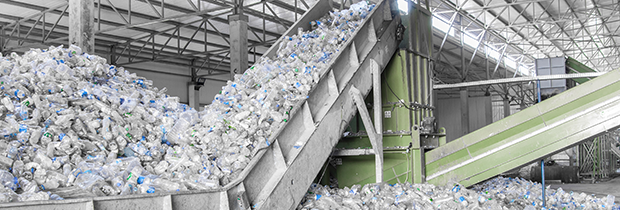Your weekly digest of policy news, funding competitions, and calls for evidence.
What’s been in the news?
UK-Japan trade deal boosts UK’s global digital position
The UK and Japan have signed an economic partnership agreement that the UK Government says marks ‘an historic moment as the UK’s first major trade deal as an independent trading nation and offering a glimpse of Global Britain’s potential.’
The UK-Japan Comprehensive Economic Partnership Agreement (CEPA) is said to be tailored to both economies and goes beyond existing EU deals. The UK Government added that there are ‘big benefits for digital and data, financial services, food and drink and creative industries.’
Commenting on the agreement Liz Truss, International Trade Secretary, said; ‘It shows what we can do as an independent trading nation, as we secure modern and bespoke provisions in areas like tech and services that are critical to the future of our country and the reshaping of our economy.’
The agreement also includes a ‘strong commitment’ from Japan to support the UK joining the Trans-Pacific Partnership (TPP), one of the world’s biggest free trade areas covering 13% of the global economy and more than £110 billion of trade in 2019. ‘This will help strengthen trade ties between the UK and eleven Pacific countries and set new standards for global trade,’ the Government said.
UK at forefront of plastic recycling
UKRI is investing in cutting edge recycling technology projects expanding the range of plastics being recycled. This will reduce the volumes being sent to landfill, incineration, or exported for disposal.
The £20m investment from the Industrial Strategy Challenge Fund, which forms part of UKRI’s Smart Sustainable Plastic Packaging challenge, along with over £65m from industry, represents the largest investment the UK has made in plastic packaging recycling technologies.
The funded UK-wide projects include chemical recycling plants for mixed plastic waste, PET recycling facilities, including project Veolia, in collaboration with Unilever, Charpak Ltd and HSSMI. Veolia will develop the UK's first dual PET bottle and tray recycling facility (supported by a digital twin created by HSSMI), capable of recycling 100% of clear rigid PET in a closed-loop system.
Meanwhile, the Tide Turners Plastic Challenge, which has been funded by the UK over the past two years, is educating young people around the world about plastic pollution. The project has just celebrated the leadership of 400 young Africans in addressing plastic pollution in their communities. Political leaders, senior UN officials and Grammy-nominated Ghanaian musician Rocky Dawuni lauded the leadership shown by young people in global efforts to fight plastic pollution.
Government funds different aspects of research around Covid-19
The UK government is backing a number of projects to increase understanding of COVID-19. The projects, a few of which are outlined below, include research to find a vaccine, the neurological effects of COVID-19 and reducing the viral spread on public transport.
Experts from the NHS, academia and the private sector as of 20 October, have joined forces with the government to explore and establish human challenge trials in the UK to speed up the development of a COVID-19 vaccine.
This £33.6 million government investment will back the studies in partnership with Imperial College London, hVIVO and the Royal Free London NHS Foundation Trust and a further £19.7 million will scale up capabilities to process blood samples from clinical trials.
As part of these trials, controlled doses of virus will help establish the smallest amount of the virus it takes to cause COVID-19 infection in small groups of healthy young people, with up to 90 volunteers.
Further research into the neurological and neuropsychiatric effects of the disease is also being undertaken at the University of Liverpool and King’s College London, backed by £2.3 million. The COVID-19 Clinical Neuroscience Study (COVID-CNS) will look at 800 UK patients who had neurological or neuropsychiatric complications whilst infected, to help identify treatments.
Finally, a new project has been launched by a team at the University of Leeds and the Department for Transport, backed by UKRI funding of £1.7 million through EPSRC. This will develop detailed simulations of the way the virus could potentially spread through airflow, from touching contaminated surfaces and from being close to someone infected with the virus.
The study will create models that will quantify the level of risk faced by passengers and transport staff. - This will help Government and transport operators decide if additional mitigation measures are needed, particularly when passenger numbers begin to return to the levels seen prior to the pandemic.

UK trade negotiations: Agreement with Japan
Evidence is sought after from stakeholders to give their views on the UK-Japan Comprehensive Economic Partnership Agreement including submissions regarding environmental issues and UK consumers.
Deadline: 11 November 2020
Robotics for a more resilient future R&D strand
UK registered businesses can apply for up to £6 million of funding as part of the ISCF. Projects or technologies must focus on Robotics and AI and last between 6 to 12 months.
Deadline: 20 November 2020
View via the government website
Innovate UK Smart Grants: August 2020
UK registered organisations can apply for a share of up to £25 million IUK funding for disruptive innovations in R&D. Projects must include at least one SME and can last between 6 and 36 months.
Deadline: 25 November 2020
View via the government website
Faraday Battery Challenge: Innovation R&D, Round 4
UK registered business can apply for a grant share of up to £10 million for feasibility and R&D projects that contribute to the innovation in electric vehicle battery technology.
Deadline: 9 December 2020
View via the government website
NATEP: helping SMEs innovate in aerospace Autumn 2020
UK registered micro enterprises and SMEs can apply for up to £2.5 million as part of funding towards projects in civil aerospace research. Projects can last between 12 and 18 months.
Deadline: 18 November 2020
View via the government website
ISCF Transforming foundation industries: Building a resilient recovery
Projects that support recovery and growth of the UK’s foundation industries could be eligible for a grant of up to £8 million. Projects must last between 3 and 12 months and start by 1 April 2021.
Deadline: 4 November 2020
Automotive Transformation Fund: expression of interest: October 2020
UK registered businesses are eligible for a share of up to £1 billion for capital investment and R&D projects, aimed at industrialising at scale the electrified automotive supply chain.
Deadline: 11 November 2020




